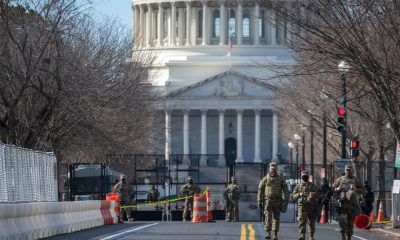News
The South LA Community Farm Ribbon Cutting Ceremony
LOS ANGELES SENTINEL — On Saturday May 18, Los Angeles residents gathered at the First Year, South LA Community Farm ribbon cutting ceremony. The All Peoples Community Center (APCC) and American Friends Service Committee’s (AFSC) Roots for Peace Program dismantle structural racism within the food industry, transforming a vacant parking lot into an urban farm.
Activism
OP-ED: AB 1349 Puts Corporate Power Over Community
Since Ticketmaster and Live Nation merged in 2010, ticket prices have jumped more than 150 percent. Activities that once fit a family’s budget now take significant disposable income that most working families simply don’t have. The problem is compounded by a system that has tilted access toward the wealthy and white-collar workers. If you have a fancy credit card, you get “presale access,” and if you work in an office instead of a warehouse, you might be able to wait in an online queue to buy a ticket. Access now means privilege.
Activism
Oakland Post: Week of December 31, 2025 – January 6, 2026
The printed Weekly Edition of the Oakland Post: Week of – December 31, 2025 – January 6, 2026
Activism
Big God Ministry Gives Away Toys in Marin City
Pastor Hall also gave a message of encouragement to the crowd, thanking Jesus for the “best year of their lives.” He asked each of the children what they wanted to be when they grow up.

-

 Activism4 weeks ago
Activism4 weeks agoDesmond Gumbs — Visionary Founder, Mentor, and Builder of Opportunity
-

 Activism4 weeks ago
Activism4 weeks agoFamilies Across the U.S. Are Facing an ‘Affordability Crisis,’ Says United Way Bay Area
-

 Alameda County4 weeks ago
Alameda County4 weeks agoOakland Council Expands Citywide Security Cameras Despite Major Opposition
-

 Activism4 weeks ago
Activism4 weeks agoBlack Arts Movement Business District Named New Cultural District in California
-

 Alameda County4 weeks ago
Alameda County4 weeks agoBling It On: Holiday Lights Brighten Dark Nights All Around the Bay
-

 Activism4 weeks ago
Activism4 weeks agoLu Lu’s House is Not Just Toying Around with the Community
-

 Activism4 weeks ago
Activism4 weeks agoOakland Post: Week of December 17 – 23, 2025
-

 Activism3 weeks ago
Activism3 weeks agoFirst 5 Alameda County Distributes Over $8 Million in First Wave of Critical Relief Funds for Historically Underpaid Caregivers

















































